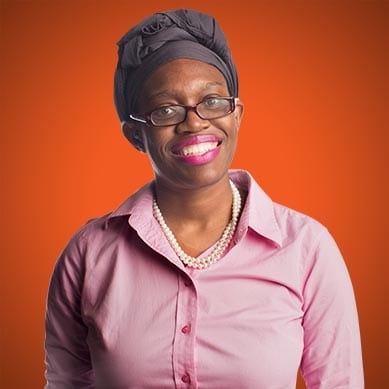Arrianna M. Planey is a PhD candidate in Geography at University of Illinois at Urbana-Champaign. She is a part of the Health Policy Research Scholars Cohort 2017.
Before we begin, tell us a little bit about yourself and what your research interests are.
I am a California native with roots in the South. My research interests as a health geographer include health (care) policy, health care worker geographies, (in)equity in access to care, and resulting outcomes. I also collaborate on health communication-related projects, because communication and health literacy are key facets of health care access.
What’s the story behind why you’re doing what you’re doing?
I am deafblind, and prior to being a PhD student in Geography, I was a clinical audiology (hearing and balance specialist) student. Even as a clinician-in-training, I was interested in how health care policy interacted with health care worker decision-making, which affects the accessibility of their services. Long story short, I am now completing a dissertation project on the multi-level factors shaping the accessibility of audiology services across scales (national level to the clinic level) as the U.S. population ages.
I was prompted to ask these questions myself when I moved across the country and had trouble accessing audiology services, and when I did, I faced notable out-of-pocket costs because my insurance plans did not cover services beyond initial assessments.
Tell us about a project you are currently working on that you are excited about.
Well, I keep a regular rotation of projects. Right now, I am working on projects on 1) segregation and birth outcomes, 2) spatial-mismatch and wage disparities among disabled workers, and 3) hospital closures. At the core of my work is a drive to center spatial justice in work on equity. Simply put, if characteristics of places where one lives and works are comprised of social determinants of health (SDoH), then the spatial mismatch between where one lives and works can also be understood as a SDoH.
For people unfamiliar with your research area, what is one piece of information you think is important for them to know?
Places are dynamic, interactive, and profoundly shaped by socio-political processes. It is not that places or neighborhoods (“zip codes”) are causing people to live shorter lives. Rather, the place-making processes of governing (housing policy, urban planning, facility site locations) and social sorting by race, ethnicity, and class interact to produce concentrated (dis)advantage that then predisposes people to poorer outcomes through the combination of stress pathways, environmental exposures, and fewer resources that enable coping in their everyday lives.
Who is a researcher you admire and why?
Honestly, the first person who comes to mind is my advisor, Dr. Sara L. McLafferty. She’s a model for the researcher I hope to be—kind, adaptable, and intellectually humble. Her work has covered a wide range of topics from health care access, to cancer epidemiology, to spatial mismatch and labor market segmentation among disabled, racial/ethnic “minority,” and women workers. The foundation of her work is simply asking questions that matter, rather than chasing publications.
How has being an HPRS Scholar helped you during your time as a doctoral candidate?
Being in HPRS has broadened my knowledge base and encouraged more interdisciplinary conversations (and even collaborations with fellow Scholars). As a geographer, I am already in an interdisciplinary field, so the challenge has been sharing my work in a way that is accessible to engineers, epidemiologists, health economists, and so forth. It is undoubtedly a worthwhile challenge, because we can’t do policy-relevant research if we’re only talking to people in our own fields.
In the RWJF HPRS program we have worked with you to help you think further about using your research to develop policy. If you could use your research to change any policy, what policy would it be?
My dissertation work focuses on how health (care) policies can and do leave populations behind, and the ways that simply change financing health care will not address profound inequities in access to care. Affordability is only one facet, and within that, the price of health care is not a complete picture of the affordability of care. The observed disparities in health care utilization along the axes of racial, ethnic, and class status often map onto disparities in spatial access to care, and subsequent outcomes borne of foregone or delayed diagnosis and treatment of chronic and acute conditions.
Bottom line, to move toward health care equity, we need to address both the financing of health care AND the location of health care services.
Ok, here’s a fun question to wrap things up. If you could visit any place in the world, where would you choose to go and why?
This is a tough one. I’ve been to some pretty far-flung places. If I could visit any place in the world right now, I’d go back to Kenya and spend a week in Lamu before flying to Zanzibar. Sunshine, sand, and water are medicinal, right?
Thank you so much for your time!

